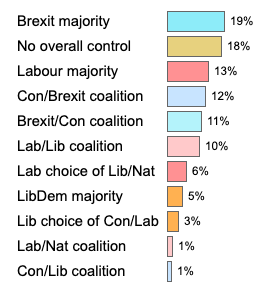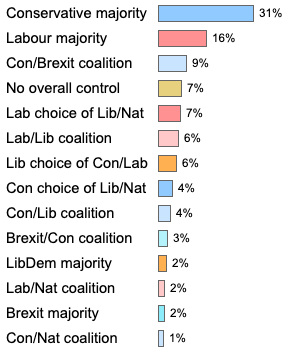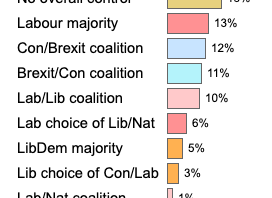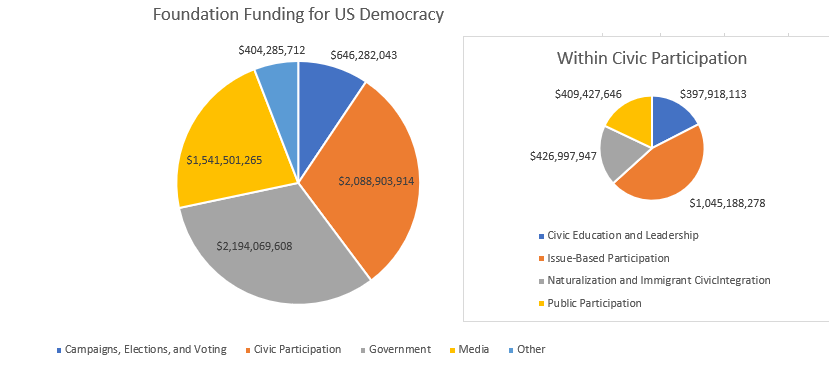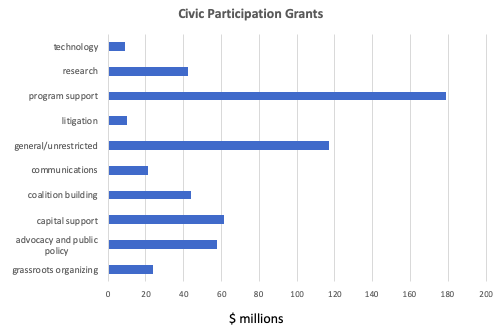Abstract: Sometimes despots have incentives to convene representative bodies that govern with them. And sometimes the leaders of republics have incentives to rule unilaterally. Changes in the incentives explain the oscillation between authoritarianism and republicanism. Today’s incentives are pushing in the wrong direction.
Imagine that a leader (a king, tyrant, dictator, general) possesses the only effective, loyal, well equipped military force in an area. That person—Mancur Olson called him a “stationary bandit”—can use the threat of violence to extract money from the population to pay for and motivate the army plus a bureaucracy that identifies, counts, and organizes the society’s wealth.
It may help if the ruler has some perceived legitimacy (an
anointed monarch instead of a usurper or dictator, for example) and offers benefits
to the people, such as safety from foreign enemies. Those factors may reduce dissatisfaction
that can breed resistance. But the main pattern is a monopoly of power that
serves to extract resources to fund the power itself. This situation can be
self-reinforcing.
But how to get to that situation if you don’t start with a loyal and effective army and bureaucracy? And how to get back to that situation if you lose it due to defections or diffuse resistance?
One way is to convene many of the leaders of the society who already have the capacity to collect resources: nobles or other great landlords who are succeeding at extracting rents, senior clergy who collect tithes or control endowments, and municipal leaders who represent commercial interests. These people can agree to generate the resources to pay for the state if they see advantages for themselves. Someone with a claim to leadership (say, a king) can convene them, negotiate with them, and end up as a ruler who shares power.
This is a way for parliamentary institutions to emerge from despotism, as they did across Europe in the middle ages. A medieval parliament almost always represented the nobility, the church, and the towns in separate houses or estates.
Now let’s say that the system is rolling along, and the monarch actually has a well-equipped, loyal military force and a bureaucracy funded by taxes. It becomes possible for that monarch to dismiss the parliament and use the state to extract taxes, rents, military service, and labor by force, perhaps legitimized by some theory of divine right.
This is a way for parliamentary government to shift into monarchical
absolutism, as occurred in many European countries around the 17th
century (plus or minus).
But let’s say the king gets into debt, or faces insubordination,
or is attacked by a powerful foreign threat, or simply sees low levels of
compliance. He may need to call a parliament again so that key stakeholders can
voluntarily agree to coordinate their efforts to raise money. And if the
parliament can organize itself effectively, it can threaten the monarch’s power
and even his safety.
This is how the English parliament gained the authority,
after 1688, to make all laws. The monarch still embodied the executive branch
and could make many discretionary decisions of a broadly managerial type. Since
that was too big a job for any individual to do alone, monarchs governed through
ministers, often holders of offices that dated back to the middle ages.
Technically, the monarch could place anyone in these offices and could intervene in any issue directly by proclamation. However, since the power of the purse had shifted to parliament (and money can buy an army), the monarch was vulnerable. Charles I has lost his head; James II, his throne. Many subsequent British monarchs preferred to govern through ministers supported by parliament. And once parliament had divided into parties, this meant selecting ministers acceptable to the majority party. George I even discovered that it was convenient to make the leader of the majority–the Whig MP Robert Walpole—an effective chief minister who would chair a cabinet that he (Walpole) chose. Walpole served in this role for 20 years, resigning only when he no longer led a majority in the House of Commons.
In this way, parliamentary cabinet government and the office that we now know as the Prime Minister evolved from the underlying situation. The premiership was not created, like the US presidency, when a person or group conceived the idea and wrote it down in a constitution or law. It emerged from Walpole’s experience serving the King with the Commons’ support. But one could explain both the British premiership and the US presidency as a result of the same underlying needs.
Some subsequent monarchs pushed back by naming ministers of their own choice who lacked parliamentary support. There was not always a prime minister all. In 1783, the politician Charles James Fox reacted to the prospect that George III might name a prime minister without the confidence of parliament:
[If] a change must take place, and a new ministry is to be formed and supported, not by the confidence of this House or the public, but the sole authority of the Crown, I, for one, should not envy that hon. gentleman his situation. From that moment I put in my claim for a monopoly of Whig principles.
The last sentence simply means that Fox would seek to legislate a requirement that the cabinet receive parliamentary support. But the first sentence is more interesting. A prime minister who couldn’t win a majority in the House would stand in an unenviable situation even if he continued to serve, because he could not govern effectively without the parliament behind him.
Meanwhile, the governments of the Netherlands and England
(at least) had learned that they did not have to rely solely on taxes, rents, and
loans from bankers. They could also borrow from their own people, who would voluntarily
buy state securities as long as they trusted the government to spend the money in
what they considered the public interest. The middle class gained that
confidence because they dominated the parliaments of these countries (versus
the weakened nobility and the disenfranchised poor). As a result, these
countries could raise huge sums and field substantial navies and armies, which,
in turn, created economic benefits for the middle classes.
As a result, governments with parliaments became far more powerful on the international stage than absolute monarchies. Republican France could field an army of 1.5 million based on taxation, conscription, and bond sales. Although Napoleon overstepped, France threatened to dominate all of Europe. Absolutism recurred after 1815 and held on in places like Russia a lot longer, but it was the long-term loser in the Darwinian struggle for fitness among nations.
In this way, republican forms of government tended to prevail, except that the vast systems of state power that republics underwrote could also break free of parliamentary oversight. I don’t think that Germany could have built a massive state apparatus between 1871 and 1932 without a Reichstag to represent the public and make taxation and conscription reasonably popular. But once that apparatus existed and Hitler controlled it, he could dismiss the parliament and rule by fear. The story was perhaps a bit different in the USSR and China, both of which had long traditions of monarchical despotism and only brief parliamentary rule before their communist dictatorships. But all twentieth-century authoritarianism echoed baroque-era absolutism (with a larger dose of terror).
Then, around 1989, most of the authoritarian regimes crumbled in the face of republican popular movements. I think this was simply a recurrence of the despot’s traditional vulnerability, his need for widespread compliance. Authoritarian regimes sagged under the weight of corruption, stagnation, and obsolescence and couldn’t draw on their publics for resources—money, talent, or enthusiasm–to fix their problems. The reasons for the original rise of parliamentary government recurred.
The problem now is that the cost of dominating a population and extracting resources from the people has fallen. You don’t need a vast conscript army if you have drones and cruise missiles. You don’t need an army of bureaucrats if you can scrape data from electronic records. If you have a monopoly on the legitimate use of force within your territory, you can rule with just a few supporters.
William the Conqueror destroyed the Anglo-Saxon elite and governed England (with a population of at least 1.1 million) with about 8,000 men. Thanks to his victory on the battlefield and the dread power of knights, he was not forced to share authority but could keep 8,000 people behind them by distributing plunder. That is an example of a single leader possessing the resources to dominate, much as modern authoritarian states do. William’s descendants saw that advantage slip away and were forced to convene parliaments–but the road to democracy was long and slow.
Dewey was wrong that “the current has set steadily in one direction: toward democratic forms.” Instead democracy and despotism have oscillated, depending, in part, on how easy and affordable it is for a small number of people to dominate the population. Unfortunately, domination has lately grown cheaper and more effective.
See also: Dewey and the current toward democracy; why post-modern nation states do not need mass support; why autocrats are winning (right now); Dubai, Uganda, and today’s global political economy; and what does it mean to say democracy is in retreat?
